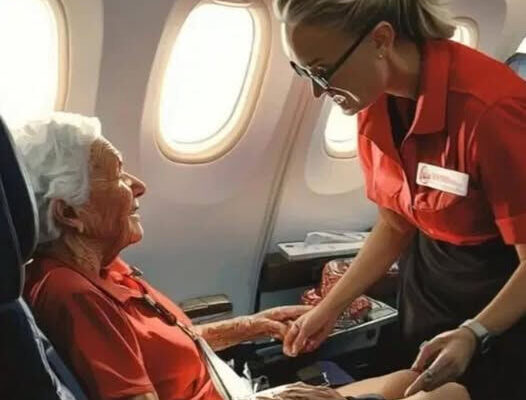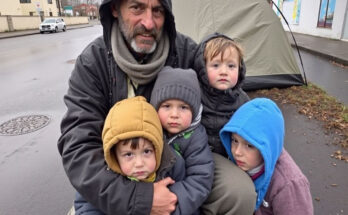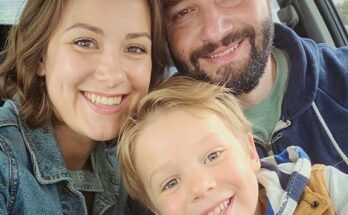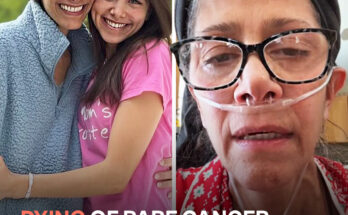I was 24 when I worked as a flight attendant. I’ll never forget this one flight. A passenger, a 62-year-old woman seated in business class, started choking, gasping for air right after she had taken a bite of her meal. I could see the panic in her eyes as she clutched at her throat. My training kicked in instantly, and without thinking about anything else, I rushed over to her seat.
I performed the Heimlich maneuver repeatedly, my heart pounding in my chest. After about 30 seconds, I got the piece of food dislodged and she started breathing again. I remember her coughing and then taking a huge gasp of air. Relief washed over me, and the rest of the cabin seemed to collectively exhale.
“Thank you, sweetheart! I’ll never forget this,” she said once she caught her breath. Her name was Barbara, and she was traveling home after a business meeting overseas. I was just glad she was okay. For me, saving a life was part of what I’d been trained to do, something I hoped I’d never need but was ready for. The only thing that mattered at that moment was making sure she was safe.
After we landed, she thanked me again. She said, “If you ever need anything, just let me know.” I nodded politely, but in the hustle and bustle of disembarkation, I never gave it another thought. Life went on.
But two years later, everything changed for me. My mother was diagnosed with a severe illness, and her medical bills drained every resource I had. I sold my car, my grandfather’s house—everything that had sentimental or practical value—just so I could keep up with the treatments. Even with all that, I couldn’t save her. She passed away on a cold autumn morning, and I felt like my entire world had collapsed.
I couldn’t afford to stay in my old apartment, let alone keep up a normal life. I moved into a musty, windowless basement that was the cheapest place I could find. Christmas was approaching, but I felt no holiday cheer. My heart was heavy with grief, and money was tight. I’d taken a leave from my job as a flight attendant because I couldn’t handle the emotional toll of being “on” for passengers while I was falling apart inside.
On Christmas Eve, as I sat in that cramped basement, I heard a knock at the door. It startled me because hardly anyone knew where I lived. I opened the door to find a man in a neatly pressed suit holding a red gift box with a gold bow on top.
“This is for you,” he said politely, handing me the box along with a small envelope.
I glanced at the envelope and saw that it was an invitation bearing the name “Barbara.” My jaw dropped. Barbara was the woman I had saved on that flight two years ago. Tears welled up in my eyes, and my hands shook as I took the box from him.
Inside, I found an ornate card with Barbara’s handwriting: “I promised I’d never forget what you did for me. Please join me for Christmas dinner at my home. I have a special surprise for you.” I also noticed a little embroidered pouch in the box. Inside that pouch was a fragile old key—no explanation, no label, just a key.
I had no idea what to think, but something in me—maybe curiosity or a faint hope—told me I needed to go. It felt surreal. I was in no position to travel or socialize, but this invitation felt like a lifeline. The next day, Christmas morning, I used the small emergency fund I had to grab a train ticket to the address she’d listed in the envelope.
When I arrived, I saw an enormous gate leading to a sprawling property on the outskirts of town. Beautiful evergreen trees lined the driveway, and festive lights twinkled all around. I felt out of place wearing my worn-out coat and scuffed boots, but the staff who greeted me at the door treated me with the utmost courtesy.
They led me inside to a warm living room with a roaring fireplace. The space smelled of pine and cinnamon, and the Christmas tree, easily nine feet tall, sparkled with lights and ornaments. Then I spotted Barbara, looking elegant in a crimson sweater dress, stepping toward me with a huge smile.
Before I could speak, she enveloped me in a hug. “You’re here! I was worried you might not come,” she said, her voice filled with genuine warmth.
She sat me down on a plush sofa, and I noticed how beautifully her home was decorated—pictures of her family and friends, classic paintings, even some travel souvenirs. A staff member brought hot cocoa, and I sipped it gratefully, warming my hands on the mug.
“Thank you for inviting me, Barbara,” I said, still feeling a bit overwhelmed. “I never expected anything like this.”
She gave a gentle laugh. “Well, I meant it when I said I’d never forget. You saved my life, and I found out what happened to you—the loss of your mother, the financial troubles. When I heard, I was heartbroken. I tried to reach you at your old address, but you’d moved.”
My throat tightened, and I had to swallow back tears. “I appreciate your kindness. Things have been… hard.”
She nodded, her eyes reflecting genuine concern. “I know there’s nothing that can bring your mother back. But I wanted to do something to ease your burden. You deserve a second chance, just like you gave me that day on the plane.”
She then motioned toward the key I still had in my pocket. “That key is to a small cottage on my property. I had it fixed up, and if you want it… it’s yours. Rent-free, for as long as you need. You can live there while you figure out your next steps.”
I nearly dropped my mug. My heart pounded. “A… a cottage? You’re serious?”
She reached over and patted my hand. “Dead serious. You saved me when I needed it most, and I want to do the same for you. At least come see it.”
I followed her outside, walking along a cobblestone path that wound through tall pines and silent snowbanks. The cottage was tucked away behind a row of bushes, with a small garden out front. Twinkling lights framed the windows, and when she opened the door, I gasped. It was cozy—a little living area with a fireplace, a modest kitchen, and a bedroom that looked a thousand times more inviting than the basement I’d been renting.
“I’ve already had the place furnished,” Barbara explained. “I hired someone to stock the fridge, too. Consider it my Christmas gift. No strings attached. Your only job is to live and rediscover some happiness.”
I didn’t know what to say. Emotions overwhelmed me, and tears poured down my cheeks. “Barbara, I… I don’t know how to thank you. This is too much.”
She shook her head with a grin. “It’s exactly enough. I couldn’t sit by and do nothing, not after all you did for me.”
That evening, I joined Barbara for a Christmas dinner I’ll never forget. I met her daughters, her grandchildren, a few close friends. I went from feeling utterly alone to feeling embraced by a family I never knew I had. They were all so kind, asking about my life, my dreams, and my hopes for the future.
As the night wound down, I stepped outside, gazing up at the star-filled sky. Barbara came to stand beside me, gently wrapping a warm scarf around my neck.
“You know,” she said softly, “we can’t control many things in this world. But we can control how we treat each other. You treated me with compassion when my life was on the line. I’m just returning the favor.”
I hugged her one more time, thanking her for her generosity. She told me I could move into the cottage that very night if I wanted. And that’s exactly what I did. For the first time in so long, I felt hopeful. My head still spun from all that had happened in a single day, but my heart felt lighter than it had in years.
The next morning, I woke up to bright winter sunlight streaming through the curtains. It felt like a dream, but it was real. I had a safe place to stay, a warm bed, and someone who believed in me enough to give me a new start.
In the weeks that followed, I made plans to return to work—or perhaps even find a new career path. And every day, Barbara and I would share a cup of tea in her garden or in front of her fireplace. We’d talk about life, memories, and the ways we can help others.
It’s amazing how quickly your circumstances can change. One day, you can feel utterly lost, and the next, someone’s kindness can remind you that you’re not alone in the world. If there’s one thing I learned, it’s that compassion doesn’t cost anything, yet it can be priceless to the person receiving it.
Barbara and I remain close to this day. She’s become like a grandmother figure to me, giving me advice and cheering me on through the ups and downs. Every Christmas, I make sure to decorate the cottage with the same warmth she poured into it that first night. And I always leave a spare key in a little box by the fireplace, reminding myself that I can—and should—pass on this kindness whenever someone else needs a lifeline.
Life can be unfair and downright heartbreaking, but when people look out for each other, miracles can happen. If you ever feel like giving up, remember that hope often appears in the most unexpected ways. Sometimes all it takes is one person willing to reach out, whether it’s by saving a life on a plane or offering a safe place when the world has turned cold.
Thank you for reading my story. I hope it reminds you that no matter how dark things get, a single act of kindness can spark a new beginning. Please share this post with someone who might need a little hope today, and don’t forget to like it so others can find this message too. After all, kindness grows best when it’s shared.



